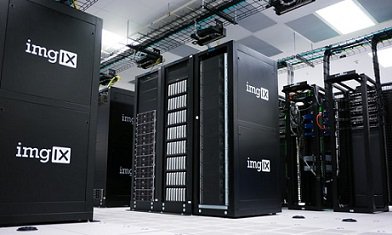Big data exists of enormous data sets analyzed using deep analytics, AI, machine learning algorithms, and other computational tools. Advanced Internet of Things (IoT) devices collect this data to reveal trends, insights, and correlations that allow the creation of predictive and descriptive measures. Managers can then use these measures to improve processes, increase efficiency, and lower costs.
The collection, contextualization, cleaning, and application of this data is a job in itself. So too is creating the infrastructure and architecture through which this data is collected, aggregated, organized, and consumed. These two jobs, data engineer and data scientist, are closely related and have many overlapping skill sets. But their focus and their contribution to big data as a resource and tool for businesses are different.
Big Data Engineer
Big data engineers are responsible for the infrastructure and architecture of big data collection. They develop the infrastructure of the data that will allow its eventual analysis by the system. Data engineers often have a formal computer science background and experience in multiple programming languages. However, it is also common for them to have developed both programming language skills and computer science knowledge based on experience.
Data engineers build the data pipelines that deliver big data to data scientists and other users. They develop the means of capture and construct and test their system to deal with the raw data streaming through the system. Data engineers also design methods to improve data quality because this data may contain redundancies and require source validation and quality checks.
Data engineers also work with building and maintaining databases. By directing data into the correct database, analysis is made more accessible. There is a strong focus on relational databases where data points of the same type or from the same task or machine are connected for relevance.
Big Data Scientist
The data engineer creates and maintains the “highway” or data pipeline that delivers and manages raw data. The data scientist is responsible for turning the raw data into actionable information. One way they do this is by cleaning the data, eliminating irrelevant data points to reduce the “noise” so the focus can be placed only on the data relevant to the analytical purpose.
Data scientists’ skillsets often come from mathematics backgrounds with a highly skilled focus on statistics and statistical modeling. Here, the data is massaged by creating complex analytical models focusing on statistics, trend analysis, and predictive and prescriptive models that can extrapolate into the future with a high degree of accuracy.
Data scientists also use different tools compared to data engineers. Data engineers rely on different programming languages and tools such as SQL, MySQL, NoSQL, and Cassandra to link and tie the collection, movement, storage, and quality of data from different sources. Data scientists use highly advanced tools like R, SPSS, and Hadoop to drive advanced statistical analysis for complex statistical modeling.
Finally, data scientists interact with business executives and other company players to understand the business needs, customize the analytics to match those needs, and deliver the most accurate and relevant insights to decision-makers. Understanding these needs also helps data scientists present their findings efficiently and understandably to the enterprise leaders.
Big Data for Entrepreneurs
Data engineers and data scientists have many overlapping skills but serve different purposes. However, they are highly dependent on one another. For small and medium-sized businesses and new entrepreneurs, big data represents a way to use big data to compete with more prominent players in their industry or create new products and services within a new industry using big data-driven insights.
At the Henry Bernick Entrepreneurship Centre (HBEC) at Georgian College, our faculty and staff are closely tied to how entrepreneurs can leverage big data to improve their business processes. Alongside our existing services for entrepreneurship, business innovation, mentorship, and R&D, we can help new leaders understand the value of big data and can help them in gaining knowledge of the skillsets and value that big data can offer. Contact us today to find out how we can help inform and advise of your big data options.










